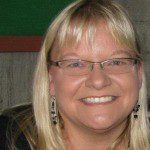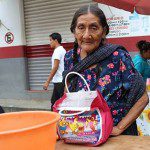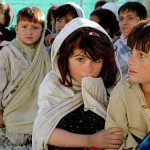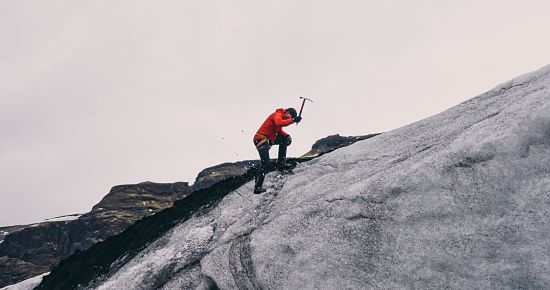by Fran Schmidt
A friend told me once that I am the bravest person she knows. In her estimation, it was brave to leave everything and everyone I had ever known to serve God as a missionary. I opened my life and my heart to the challenge and adventure of living in a developing country, to the vulnerability of speaking a second language and to managing the varying, new cultural cues. She felt I was brave for navigating the streets of Lima, driving my own vehicle in a place where: most traffic laws are not obeyed; people cross the street wherever they please; mothers holding babes in arms run wildly across the street to not get hit by oncoming traffic; overloaded buses spew diesel and cut off other motorists; taxis, moto-taxis, and vehicles of every sort join in a cacophony of horns used to communicate their lane changes, turns, and disgust; and then there is the infrastructure that cannot manage the millions of vehicles nor the ever expanding population, numbering over eleven million people in this sprawling city. In contrast, the city I grew up in of just over a hundred thousand people was peaceful. Not a lot of traffic or people. It was safe, we did not even lock the doors when we left the house, except on extended holidays. My childhood, idyllic. One spent on green grass, running through a water sprinkler, playing on a swing set my dad built, camping in a tent in the backyard in the summers, playing hide and seek in the bushes of the neighbor’s yard. A childhood at the lake, fishing, waterskiing, lying on a beach, roasting marshmallows over the fire at night. Idyllic. Rare. Not the childhood of most children in the world.
This is what drew me to the story, to the life and death of Kayla Mueller. She went to Syria to work with the children in refugee camps. From what I understand, Kayla had a passion to help others because of her faith and deeply rooted values of justice. Values I hold as well. Kayla went, despite the risk. Maybe she should not have been there. Her presence might have put other aid workers at risk. She stood out. And someone took notice. Within a day’s arrival, the vehicle she was in ambushed, she and a colleague held hostage. Her dream to work with the children, unrealized. Is it brave to take such risks, in places with such high levels of crime, terrorism even? Whether in a country with an obvious terrorist threat, where war is real, violence a part of every day, assault, rape, kidnapping all commonplace or in a country whose violence is thinly veiled, aid workers and missionaries accept the risks. Anything can happen. Theft at a red light by sparking jumper cables or a crowbar that crashes into a car window, make believe accidents at the side of the road to scam “Good Samaritans”. Street lights dimly lit at night, lest they reveal the real threat that is always there. My friend thought me brave for driving in Lima, brave to move there, to live in a place of vulnerability, with threat of violence, crime, in order to accompany the church and its members there, in the barrio with threats of its own. But it is life, itself, being threatened, yours, mine and that of all humanity. My mind could not help but remember my own experience abroad when I read about Kayla’s story. Captured and held captive by ISIS, and after over a year’s imprisonment, died in a bomb attack for which no one will claim responsibility. A person who is prepared and who has been oriented to the risks knows full well what they are signing up for when they begin their mission journey. She had traveled to several countries to align her life with those of the marginalized, the forgotten, the voiceless, and the suffering. 2 Kayla was an advocate, a friend of those in deepest need. Her short life was lived in solidarity with others. She knew the risks and took them.
I knew the risks and accepted them, too. As aid workers or missionaries, we are oriented to those risks. At mission orientation, we learn of the risks to our health and safety. On day one, we learned that the number one cause of missionary death in the world was not some strange parasite or even violence or murder, but traffic accidents. In many countries, particularly in the developing world, seat belts are often not used or even found in vehicles. Hard to believe. We learn of countless other risks. My nightmares began two months before leaving Canada. Dreams where I was kidnapped, raped, murdered, robbed, held at gun-point, even knife-point. Dreams where I was held captive in a jungle for months, years. In countries where drug cartels are prevalent, civil war a part of the history, anything could happen at any moment. I became aware of the color of my skin, my height and weight. How much I stood out in a crowd of locals. We were made aware of the realities, given training and skills, cues to watch for and ways to respond in particular situations, how to not put ourselves in harm’s way, how to recognize and respond to dangers or threats of their various kinds. All for the purpose of serving in the field as long as we could with minimal risk to our health and safety. With some orientation and preparation, I went to serve in Peru, knowing, accepting, risking.
Prepared and experienced, Kayla knew as many do, that the urgent necessity of aid and missionary work outweighs the risk or threat to our person. Her answer, my answer: yes. To the importance of God’s work among those in the barrio, with little resources and lives at risk, yes. The answer, Kayla’s answer, to the children in Syria, yes. It had to be yes. Mine continues to be a yes.
It has to be yes. The Gospel propels us, calls us, coaxes us, urges us to follow God’s mission into the world. God wishes peace, God wishes harmony, God wishes that walls be torn down, that there be an end to violence, to conflict, to death. God is about life not death. And as we follow God out into the world, local or global, we also are about life. There cannot be life while some live without food, in cold cardboard or simple tents to call home. This is not life, it is barely survival. God calls us as his daughters and sons, to go out into the world, to be a prophetic voice raising awareness of the inequalities and injustices. God calls us to speak up, to rise up, and to walk alongside those on the margins, those in deepest need. For me, there could not have been another option when the call came. It was a screaming YES. If it meant I was in harms’ way, if it meant a knife to my throat. We are not called to complacency. We are called to action by following Jesus’ example to the nations, to foreigner’s, to prostitutes, tax collectors, lepers, widows, orphans. The only answer for us in our Christian journey, when called upon by our Lord, when deeply moved by the Gospel to be with those who are refugees, who have nothing left is to take up our cross, leave ourselves behind, and follow. To accompany, to offer food, shelter, to give our all, all of ourselves, maybe even our lives to be in solidarity with others.
Kayla’s death is cruel for her family and friends. They might not have a sense of peace with her decision to say yes and go despite the risk. But these are risks she understood and accepted because, from my perspective, she believed and lived out the understanding that all human beings are entitled to life. She put herself in harm’s way time and again, taking up the fight for life, for the life of others. Her life and her death must not give rise to hatred of ISIS or other extremists. But her life should reaffirm our commitment to life. It should give us pause to question and consider how governmental and economic policies, supply of arms and economic interests have a hand in taking away life. That which threatens life: control, power, 3 vengeance, war, violence. These do not come into being on their own, they are created. And we need to hold governments and those who control economic and military power accountable to their actions of the past and present which create and fuel the extremism we see in the world today.
Let Kayla’s death be our wake up call. She went to accompany those whose lives are being taken away, one bomb at a time. We need such an experience, perhaps, to be jolted from our comfortable lives so that we can begin to question our governments and economic systems, we need to call them to account. We need to demand transparency and accountability. We need to advocate for peace, reconciliation, in short, life.
Our plight is humanitarian but as Christians it is who we must be because it is who God is. In the Gospels, Jesus questions religious authorities and leaders, challenging their actions and decisions which take life away from the people most in need. The leaders have failed to live up to their covenant with God, who wants justice and righteousness for all. Living in covenant gives life to individuals and the community. And we, too, are to be about life. Life abundant, life and equality, justice and righteousness.
The struggle for me as a Christian woman remains: when is it brave or faithful to stand up for justice, putting oneself in harms’ way, taking life-altering risks and when is it simply reckless? Having spent time in other developing countries in precarious situations already, Kayla would have known that her presence in the street and in the hospital would draw attention. We cannot know if this was simply a case of breaking one of her own health and safety rules to accompany a colleague or an intentional martyrdom. The question lingers in my heart and begs to be named. She was not yet serving the children in refugee camps. She had only just arrived. Why put oneself in harms’ way, when to do so would mean not arriving at the mission to which she was called. It feels illogical. Counter-intuitive. To risk oneself for others, I understand. But to endanger oneself even prior to arriving at the point of service, on a simple day’s outing is a piece of this story, Kayla’s story, which remains troubling. Did she really not realize the risk in simply being there? Was hers a reckless decision or a protest out of her deeply held values of justice?
Whether reckless, brave or faithful, I have driven and walked down some dimly lit streets. Money tucked in the side of my bra and in my shoes, passport photocopied-laminated in pants pocket, cell-phone hidden in my waistband waiting to be used upon arrival at my destination to phone a friend to ensure I had arrived okay. I have been down those streets, in some of those places. Areas known for robbing locals and tourists alike. Unsafe. Beatings, murders, a walking target. Unsure, sometimes, which bus or taxi will offer safe passage home. Yet the necessity of the mission and ministry to which I was called compelled me to go into those neighborhoods, where faith communities are working with those in need of food, encouragement, accompaniment, and a word of grace, love and hope.
Our response to the Gospel can honor a woman who was brave, who truly stood up for the Gospel and for what she believed in. One who acted, risking her safety, and in so doing, did more in her short life to accomplish what others do not do in an entire lifetime: she fought for justice, she fought for life. The life that all people ought to be able to live. It should be our mission, too. We ought to risk something of ourselves so that children can grow up in safety, security and peace. So they, and indeed all people, can live with basic human rights including a good education, good health care, clean drinking water, freedom of religious expression and beliefs, equal rights for men and women. A life free of violence in its many and various forms. A free life. A carefree childhood. The Kairos of God’s presence with us compels us to serve and to stand for that which gives life. May Kayla’s life and death be our example, to go to places that are uncomfortable and take risks for those who will not have a carefree childhood, for those who are orphaned and widowed, for those who are suffering, for those on the margins whether locally or globally. Let us immerse ourselves in the waters of our baptism and drown in the grace of God so that we might die to ourselves to live for others so that there can be an end to hatred and division, an end to violence and war, an end to terror and fear, so that peace can reign, religious freedoms can be valued, and visions of power, dominance and control can give way to the peaceable kingdom. There will be acceptance, dignity, value for each human life and for all of creation itself. The lion will lie with the lamb and there will be peace and love. For where there is love, there is life.
 Fran Schmidt is a pastor, writer, musician and pilgrim traveler who is passionate about the Gospel of Jesus Christ, speaking to justice issues and calling people to a greater global awareness. She leads groups on mission awareness experiences around the world (pilgrimsonpurpose) and writes a devotional blog (devotionalwonderings.wordpress.com). A Lutheran Pastor in the ELCIC (Evangelical Lutheran Church in Canada), Fran served as a missionary to Peru and currently serves in new church start in an area north of Saskatoon, Saskatchewan, Canada.
Fran Schmidt is a pastor, writer, musician and pilgrim traveler who is passionate about the Gospel of Jesus Christ, speaking to justice issues and calling people to a greater global awareness. She leads groups on mission awareness experiences around the world (pilgrimsonpurpose) and writes a devotional blog (devotionalwonderings.wordpress.com). A Lutheran Pastor in the ELCIC (Evangelical Lutheran Church in Canada), Fran served as a missionary to Peru and currently serves in new church start in an area north of Saskatoon, Saskatchewan, Canada.














